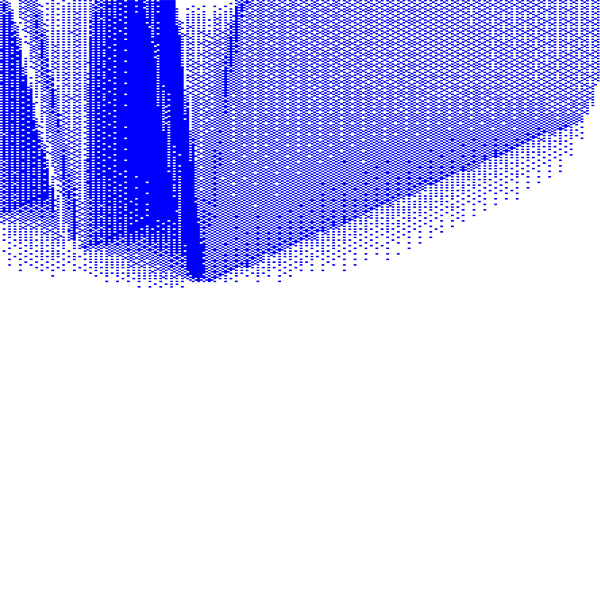Reflections on Feminist Search Tool by Anja Groten and André Fincato
The Feminist Search Tool (FST)—a collaboration between Hackers & Designers and the collective Read-in—is an on-going collaborative project. Operating at the intersection of digital culture, art, design and (gender and decolonial) theory, FST is a work-in-progress digital tool with the goal of inviting users to reflect on their search inquiries and how they are directed by biases and omissions. At the centre of the FST is a question posed by librarian and scholar Brian Rosenblum’s in 2015: “How do libraries and their digital environments feed instances of ignorance through technologies that can ‘magically’ facilitate information discovery for the user but that can [also] obscure the modes of production—and the material, economic, and political forces that control them—behind the shiny and smooth curtain of the search interface”.
Apart from the digital object—a backend infrastructure and interface that gives access to a library catalog—FST has been, and still is, an open process to which we invite different stakeholders at different moments, mostly through workshops. The different workshops confront different challenges that come about when incorporating feminist approaches into the search and discovery tool design (Ray Henry, 2015). One of the challenges, leading to some tension and disagreement between collaborators is the transition from theory to practice, which—by itself—is perceived differently by the various intervenients. Some view modes of discussing, organising, coordinating, and reading as practice. Some would differentiate practice as modes of coding and designing—the formalisation of ideas, for example, into the form of wireframes, interaction design, and the visual language of the web interface. Although everyone agrees thinking and making can hardly be separated, the understanding and expectation of the meaning of practice diverges. As soon as thoughts are translated to interface elements or forms of interaction, for instance, tension grows and disagreements are expressed. All collaborators involved are (as researchers, artists, designers, programmers) entangled as accomplices in the matter of critique. Putting forth the bold question: “Why are the authors of the books I read so white so male so Eurocentric”, the project addresses our own partaking in the issues at stake. The approach of designing an actual tool can therefore only be, and needs to be, complicated. The process is lengthy and troubling at times. While trying to build a tool we constantly stagnate, questioning the conditions under which the tool is developed. To give one example; the distribution of funding within the group became an issue when we had to acknowledge that our group represents a privileged part of society. If we wanted to address the shortcomings of Western knowledge economies, didn’t we have to address those of our own constellation as a group first—and critically examine how we distribute our funding? I was confronted with my own belief that through making things together, engaging directly with processes of designing and building technology, we can study and develop a coherent and shared critique of technology design. However, even though we do not emphasise the utilitarian aspects of design in our process, by privileging process over outcome, we still produce and reproduce knowledge, practices and habits, and therefore need to be aware and more importantly take responsibility for our own actions. At this point, FST serves as a concrete, yet speculative digital object, through which we are able to investigate the limits of tool-making in relation to our different practices. We initiate workshops and invite distinct critical publics to join us, such as librarians, information specialists, developers, and LGBTQ archivists. Neither the workshop format, nor the tool we are designing, become ends in themselves but instead facilitate a framework for encountering differences.
- notes
1. Read-in is a self-organized collective that experiments with the political, material, and physical implications of collective reading and the situatedness of any kind of reading activity. https://read-in.info/
2. Brian Rosenbum, “Decolonizing Libraries” (extended abstract), Feb 2015, http://brianrosenblum.net/2015/02/01/decolonizing_libraries/
